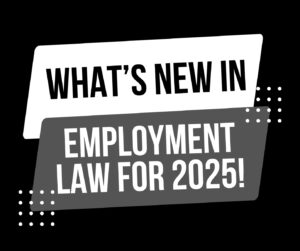It is impossible to be a labor and employment lawyer in California and be ignorant to the continuing controversy and development over who is an employee vs who is an independent contractor. After the legislature passed AB 5, which made it much more difficult to classify workers as independent contractors, the gig industry backed Proposition 22, an initiative that essentially provided an exemption for rideshare drivers, allowing them to continue to work as independent contractors. The electorate passed Proposition 22 by a fairly wide margin.
However, in a case currently before the California Supreme Court – Castellanos v. State of California – labor-backed groups are seeking to invalidate Proposition 22, arguing that because the workers no longer qualify for constitutionally mandated workers’ compensation benefits as independent contractors, Proposition 22 is unconstitutional, as only the legislature – and not a voter-backed initiative – can amend the California Constitution. The argument is that because the workers’ compensation system is enshrined in the California Constitution, it cannot be altered or amended in any manner that is not constitutionally authorized. The opponents contend that only the Legislature can amend the Constitution.
Business-backed groups, not surprisingly, have taken a contrary view, and have argued that a voter-backed initiative can indeed serve to amend the Constitution, just as the Legislature can. Moreover, they contend that there should be even more exemptions to Prop. 22, as allowing that flexibility in the workforce would benefit the California economy as a whole. Oral argument in the case has not been set, but it is expected that a decision will be made before the end of this year.
Takeaway: Whatever the Supreme Court decides will certainly have a significant impact on the way business is conducted in California. If it invalidates Proposition 22, there will be tremendous ramifications for the gig economy, and likely a whole new spate of wage and hour class actions or PAGA suits will be brought for failure to provide legally mandated rest breaks, meal breaks, overtime, etc. If, however, the Court upholds Proposition 22, it will likely be seen as a roadmap for other industries to seek a similar exemption, thereby allowing many more workers to qualify as independent contractors, and thus be removed from the wage and hour laws and workers’ compensation requirements. Either way, I envision labor and employment lawyers in California continuing to have their plates full for the next several years.











